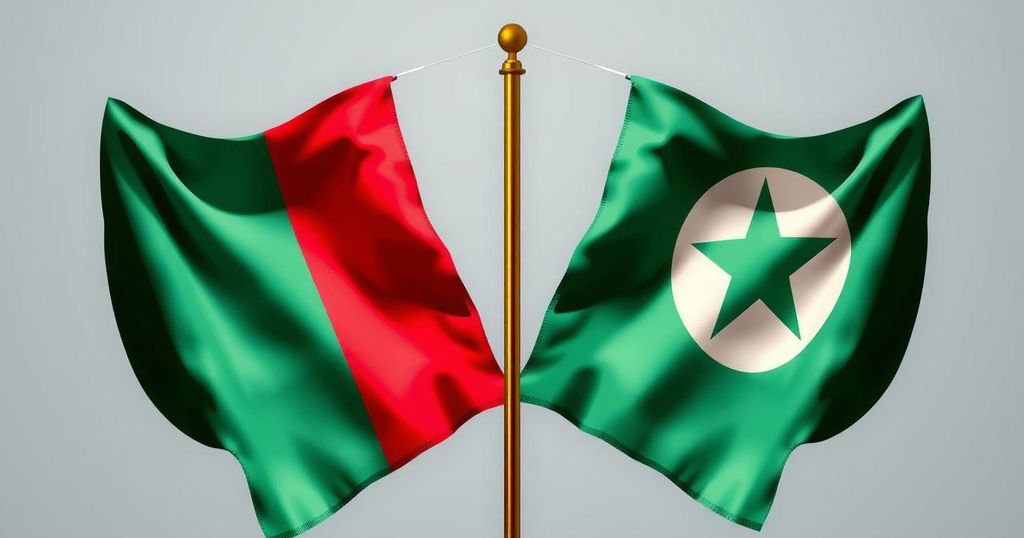African Union Urges Swift Implementation of Agreement Between Ethiopia and Somalia

The African Union has urged Ethiopia and Somalia to implement a new agreement aimed at resolving tensions related to Ethiopia’s access to the sea. This follows a contentious deal between Ethiopia and Somaliland. The agreement signals potential regional cooperation, with support from international stakeholders, including the US and the UN.
The African Union has called upon Ethiopia and Somalia to promptly execute an agreement that seeks to alleviate tensions between the two nations regarding Ethiopia’s sea access. This appeal comes in light of a contentious deal struck between landlocked Ethiopia and Somaliland, a breakaway region of Somalia, aimed at leasing a coastal area for port and military purposes. Ethiopia’s Prime Minister Abiy Ahmed and Somalia’s President Hassan Sheikh Mohamud participated in Turkish-mediated discussions that culminated in this “historic” agreement, which highlights a mutual interest in cooperation and regional stability.
Despite Somalia’s initial concerns that the agreement infringes on its sovereignty—a sentiment that resonates internationally—the leaders have committed to ensure Ethiopia’s reliable access to the sea under Somalia’s sovereignty. The agreement includes technical discussions scheduled to commence shortly and emphasizes the significance of diplomatic dialogue in resolving bilateral issues. The African Union and other international stakeholders, including US Secretary of State Antony Blinken and UN Secretary-General Antonio Guterres, have expressed their support for this collaborative effort.
In summary, the agreement, although fraught with complex historical tensions, signals a step towards enhanced diplomatic relations and regional cooperation. While Ethiopia seeks consistent access to maritime resources, Somalia’s government is challenged to address concerns regarding sovereignty while also fostering stability in a historically volatile region. The success of this accord will ultimately depend on the commitment and efficiency of both nations to uphold the terms established.
Ethiopia has been landlocked since Eritrea gained independence in 1993, forcing it to rely on neighboring countries for seaboard access. The country’s recent dealings with Somaliland, which has sought to operate independently since declaring independence from Somalia in 1991, have strained its relationship with Somalia. The potentially contentious agreement includes provisions for Ethiopia’s use of a coastal port, raising alarms over regional stability and the possibility of renewed conflict. Previous diplomatic attempts have been less successful, underscoring the critical nature of recent discussions mediated by Turkey.
In conclusion, the African Union’s urging of Ethiopia and Somalia to implement their newly reached agreement underscores the importance of cooperative regional relations in East Africa. The historic nature of this accord presents an opportunity for resolutions that address both countries’ aspirations while enhancing mutual respect for sovereignty and territorial integrity. The international community, particularly Turkey, the US, and the UN, have shown interest in ensuring the success of this negotiation, which could set a precedent for resolving future disputes in the region.
Original Source: www.enca.com








